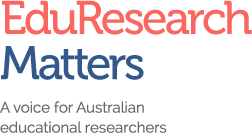Following on from our previous piece, we explore the necessity for genuine evidence-based education practice to guide teachers’ work.
What is evidence-based practice in education, really?
By the early 2000s, the medical model had evolved from Sackett’s original concept. New frameworks appeared integrating the patient’s values, preferences, and circumstances and the clinical context, with research evidence and practitioner expertise. Through this evolution, evidence-based practice became an individualised process of decision-making. It relied on professional reflection, situational awareness, and mutual understanding between doctor and patient.
It was never designed as a universal prescription, but as a guide for action within the complexities of human care.
Evidence-based practice in education didn’t emerge through a tradition of reflective professional judgement, as it did in medicine. Instead, it was imported through policy mechanisms, often driven by governments seeking scalable solutions to perceived educational problems.
In Australia, these “solutions” are provided by the Australian Education Research Organisation (AERO). Agencies such as the EPPI-Centre (UK), the EdCan Network (Canada), and the Institute of Education Sciences (USA) serve similar purposes. They promote models of evidence use that emphasise generalisability and scalability at the expense of teacher expertise and local context.
Teachers are not invited to interpret evidence, only to receive it
In these systems, evidence-based practice becomes something done to teachers, not by them.
The clinician making a judgement for and with a patient is replaced by a teacher required to implement a set of strategies proven “to work” in controlled trial. That’s regardless of the student, classroom, or community. The message is clear: teachers are not invited to interpret evidence, only to receive it.
This pattern of decontextualised, policy-driven “evidence use” is not new. Others have rightly criticised it. In recent posts, authors such as Dean Ashenden, Nicole Brunker, and Nicole Mockler highlight the narrowing of what counts as “evidence,” the sidelining of teacher expertise, and the ideological function of “what works” discourse in Australian education reform. These are essential critiques.
Our aim here is to build on and deepen that conversation. We do so by revisiting the roots of evidence-based practice in its original domain: medicine. By returning to David Sackett’s foundational model, we show just how far education has drifted from evidence-based practice as a reflective, individualised and context-sensitive endeavour.
A fundamental departure
We argue that what AERO presents as evidence-based practice is not simply reductive. By removing these crucial elements, it represents a fundamental departure from the professional logic that EBP was built on.
This departure matters. It shapes how teachers are trained, how their practice is judged, and how their professional expertise is valued, or ignored. It also has deep implications for student learning, particularly in a system where teachers are not supported to think critically with and about evidence. They are instead expected to implement pre-approved solutions that exclude uncertainty, discourage inquiry. These ‘solutions’ bypass the relational dynamics that are central to teaching. This is in a system that is supposed to teach critical and creative thinking in every Australian child.
We write to reclaim it as a tradition of reflective practice, professional judgement, and pedagogical care.
No problem solving for teachers or students
In the foreword to the fourth edition of their book Evidence-based Practice Across the Health Professions published just last year, Australian EBP experts Hoffman, Bennett, and Del Mar cover the current understanding of the medical model of EBP (MEBP). They define it as a “problem based approach where research evidence is used to assist in clinical decision making”.
This remains consistent with what David Sackett understood when he first articulated evidence-based medicine. Professionals make decisions in uncertain, complex, and relational contexts. They draw on research, experience, and the needs of those they serve.
We argue that this conception of EBP is most suitable for translation into education because both teaching and learning are, at their core, problem-solving practices. Instead we are left with an education ideology that removes the practice-as/is-problem-solving and learning-as/is-problem-solving foundation of Sackett’s concept of evidence-based practice for teachers and students.
A core competency
We call for problem solving to be a core competency for teachers, just as it is for practitioners in MEBP where practice is underpinned by what Hoffman et al call an “attitude of inquiry”. Unlike AERO’s “this works – do it” mentality, the process of MEBP acknowledges that “uncertainty is an inherent part of health care”, and begins with the practitioner identifying a problem in their own context and going to the evidence base with a question. We advocate for an evidence-based practice in education that embraces the uncertainty of our profession. We propose an adaptation of MEBP’s “The five A’s” as a frame for guiding educators to engage in evidence-based practice:
The Five A’s of EBP for Education
- Ask a question – convert your information needs into an answerable pedagogical question
- Access the information – find the best evidence to answer your pedagogical question
- Appraise the articles found – critically appraise the evidence for its validity (risk of bias), impact and applicability in your unique context, with your specific students
- Apply the information – integrate the evidence with classroom expertise; the students’ values, preferences and circumstances; and information from your classroom context.
- Audit – evaluate the effectiveness and efficiency with which steps 1–4 were carried out, and think about ways to improve your performance of them next time.
Embracing a framework like the Five A’s for EBP in education would not be an easy change.
Time, resources and professional learning
Teachers would need time, resources and professional learning to develop the research literacy to engage in this kind of professional practice. However, it holds the potential for educators to take back the ownership of their profession, reclaiming/reframing teaching as a tradition of reflective practice, professional judgement, and pedagogical care.
If teachers, researchers and educational leaders are respected as the professionals they are, then there is potential to correct the current trajectory of evidence-based practice in education and its undermining of the very heart of effective teaching, empowering teachers as problem-finding, problem-solving, critically reflective teacher-learners committed to individual student needs, rather than as mere implementers of mandates.

Brad Fuller is an educator and researcher with over 35 years of experience in music education and curriculum innovation. He is associate lecturer in music education at the Sydney Conservatorium of Music, University of Sydney. James Humberstone is a senior lecturer in music education at the Sydney Conservatorium of Music, The University of Sydney. He specialises in teaching music pedagogies, technology in music education, and musical creativities. Rachael Dwyer is a lecturer in curriculum and pedagogy at the University of the Sunshine Coast. Her scholarship is focused on creating social change, through decolonizing, arts-based approaches to teaching, advocacy and research.








The Fragmented Landscape of Educational Research
Recommendations from major evidence-based organizations—such as the What Works Clearinghouse (USA), the Education Endowment Foundation (UK), and AERO (Australia)—often diverge sharply, sometimes even contradicting one another. Attempting to align these with perspectives from leading educational researchers like Marzano, Hattie, and Sweller only deepens the inconsistency.
In his 2023 reflection on the evolution of Cognitive Load Theory, Sweller acknowledges the necessity of revising his framework in light of conflicting findings—a candid recognition that the field is anything but settled.
Yet in most educational presentations, the inherently contradictory nature of research is seldom addressed. Instead, specific strands of evidence are selectively presented to bolster a preferred pedagogical stance, while contradictory studies are left out of the narrative.
This selective portrayal contributes to a larger concern about the reliability of “evidence-based” practices. Wadhwa et al. (2023), in their analysis of 12 evidence clearinghouses, concluded:
“Clearinghouses exist to identify ‘evidence-based’ programs, but the inconsistency in their recommendations of the same program suggests that identifying ‘evidence-based’ interventions is still more of a policy aspiration than a reliable research practice.”
Evidence reflects the framework that validates it. This is a point that is not emphasised enough in policy papers. If we teach students that a recount involves listing events, that’s exactly what we will get: NAPLAN texts which students conclue with: “You asked for a recount, so there you have it”. Thus, it’s not enough to claim “this method works”; we must examine the frameworks we rely on to support these claims. But how can we effectively test our frameworks? By contrasting them, not just with what came before, but against genuine alternatives that challenge our assumptions and push our intellectual boundaries. Until we stop measuring success by yesterday’s benchmarks, we remain stuck proving the past rather than building the future—comfortable, perhaps, but ultimately getting us nowhere.
Ania Lian, CDU
Some great insights here George – thanks. James and I often wonder how something that’s literally called a theory ( Cognitive Load THEORY) can so often be presented as fact. Thanks for reminding us of contradictory nature of research and the value of open mindedness and critical thinking.
I think you misunderstand the nature of scientific theories. Do you consider evolution to be just theory and not fact? That’s been an attack line of creationists for decades.
Greg, I think we understand quite well how scientific theory works – one cannot prove anything, only disprove. Some theories (like evolution) have more evidence than others. Some, like cognitive load theory, have evidence on which follow up claims are made (that explicit instruction reduces cognitive load and unguided instruction is harmful), and evidence that goes against such claims (for one example: https://www.sciencedirect.com/science/article/pii/S1747938X24000320).
A healthy sense of skepticism and uncertainty is crucial for good researchers. Love to debate ideas, but not sure oversimplifications are helpful.
Thanks. I am not claiming cognitive load theory and the theory of evolution are equivalent. I was responding to Brad’s emphasis on the word THEORY in cognitive load theory as if that was significant. As you suggest, all scientific theories are theories. That’s as good as science gets, so we are in furious agreement.
The paper you have posted responds to the paper below which I am certain you will be happy for me to share for completeness:
https://www.sciencedirect.com/science/article/pii/S1747938X23000775
Teachers, researchers and educational leaders can implement their own evidence-based practice, but they can’t do that by waiting for someone else to give them permission to. They need to assert their authority over the discipline by issuing their own standards and guidelines, them implementing them through the teacher training curriculum.
I 100% agree Tom. Teachers need time and support to do this, but it is possible. Unfortunately, government policies often present the research as settled, black-and-white, and expect teachers to fall into line.
So true
Thank you for this post: it is important to revisit what evidence-based practice should actually mean in education. From my experience, the notion that teachers should do their research (as defined by evidence-based practice frameworks) is unrealistic. Teachers lack the necessary time, institutional support, and methodological training to carry out research in any meaningful or sustainable way. Promoting this model risks sending a dangerously misleading message: that education research is “easy”, requiring little more than asking a question.
But we know that asking the right question is not simple: it is the product of research, not its starting point. It requires conceptual frameworks, theoretical grounding, and immersion in existing knowledge. That is the role of universities. And this is precisely why sustained, collaborative partnerships between schools and universities are essential. Yet since 2013, these partnerships have been systematically dismantled. In their place, we have seen the rise of Department-funded professional development programs, initiatives that have muddied the conceptual landscape. If there is disappointment with educational research today, it stems not from universities themselves, but from increasingly restrictive policy conditions, including some driven by AITSL, that have narrowed the space for innovation and the depth of collaboration needed to support real improvement. In short, people are scared to think outside the 1950s frameworks that these policies continue to advocate, undermining the more ambitious and imaginative qualities of the Australian Curriculum itself.
What is needed is not tighter control over narrative delivery, but a serious examination of what our educational frameworks ignore or leave out—and how this omission hinders more responsive teaching and stronger connections to both practice and the Australian Curriculum.
regards
Ania Lian, CDU
It’s a big task to reimagine what professional work for teachers looks like, but I think that’s what is needed.
Thank you for this brilliant summary of the dumbing down of Australian mainstream education. We’re not far away now from having Neo or Optimus robots out the front of classrooms in schools everywhere I reckon, as soon as parents get more comfortable seeing them around their children, walking the dog, watering the garden, doing the shopping etc.
I couldn’t agree more about the need for teachers to embrace EBP critical thinking and problem-solving skills. The problem I see with all this is that the education system currently does not prepare students for this more creative role. The bar is a lot higher for medical students so they tend to have the requisite skills already, while those entering ITEs don’t, although of course that’s a pretty broad generalisation. The students I see in my ITE classes generally don’t have those skills, although a small minority do seem to. So ITEs would need a radical overhaul to be able to equip teachers with the skills needed for EBP.
The training undertaken by Montessori teachers is very much oriented towards equipping teachers with these skills. And the satisfaction of Montessori teachers is generally much higher than in mainstream and the students outcomes are also much higher in general.
Thanks Mark,
I’ve noted your prediction. mad dated it so I can give you credit if/when the robots take our jobs. I’m one of those people who always says please and thanks to ChatGPT – just in case you’re right…
Thanks again Brad, James, Rachael, and thanks particularly for the link to my piece. The news from the medical profession IS news to me. I wonder, tho, whether the two kinds of practice are different in kind rather than degree?
I hope you stay on AERO’s case – and have a go at the purposes it serves. The thing I find so galling is what they do – retrogressive, even reactionary – versus what really needs doing. All those millions should be spent by a completely different agency tasked with finding, working with and supporting schools that are trying to re-cast student (and therefore teacher) work, with the first focus on learning rather than teaching.
Thanks for your blog post and your comment Dean. It’s really encouraging to discover others who have had similar head scratching moments and been prepared to share them with the wider community. Thanks!
What is needed and should be required is that all education academics to continue with their academic life must still be practicing in a school environment. They must be assigned to a school near their tertiary institution and take a regular class. I believe this would assist enormously in their understanding of what really happens in the education environment, and what really works. Even when preservice teachers are placed on professional practice they are supervised not by the education academics, but by other teachers who are contracted for the role and come to observe one or two lessons.
Education requires researchers from diverse walks of life, but the link with practice, in one way or another, is certainly critical. Sadly, today’s education system tends to assume that teacher educators should necessarily be former teachers—a viewpoint that only serves to perpetuate the past. Rather than opening doors to meaningful university-school collaborations, we seem increasingly adept at closing them. Currently, sustained partnerships between universities and local schools rarely extend beyond basic practicum responsibilities.
We once attempted a more ambitious approach in the Northern Territory, with a couple of programs, including one that allocated specific schools to individual lecturers for ongoing support. Unfortunately, those initiatives faded away—partly due to underutilisation, partly because policies did not sufficiently promote or protect the initiative, despite available funding and genuine goodwill.
Ania Lian, CDU
Personally, I’ve always wanted to be able to do this – work in a school and as a teacher educator. So far, I haven’t been able to find a school or university that was interested in making this into a workable arrangement.
My ITE (2018 graduate) left me woefully underprepared to either teach children to read or to help those who encountered difficulties along the way. Through countless hours of reading research, attending conferences, listening to podcasts and watching webinars, I’ve come a very long way towards remedying the gaps in my knowledge of how children learn.
For many reasons, a significant proportion of teachers don’t invest the time to do this level of research, and the professional development offered in schools is of varying and often dubious quality. This leaves many, many teachers without the foundational knowledge to help a great many children reach their academic potential. The flow on effects of school leaders and teachers choosing their own adventure when it comes to deciding how to teach children and which evidence they should attend to has catastrophic lifelong implications. My children are a testament to this: one had several teachers whose knowledge of maths instruction was paltry leaving them floundering in early secondary school, and the other had an excellent foundation from which they have continued to flourish with subsequent strong instruction. Join any dyslexia Facebook group to read about the devastating impacts of poor teacher knowledge and practice.
So, although ITE changes will hopefully stop sending graduates out into the workforce armed to do more harm than good, despite everyone’s noble intentions, AERO is a mechanism through which all teachers can access concise, actionable information that can help them improve their practice. Why am I so sure they’re on the right track? Because there are a growing number of schools implementing these practices who are rightfully shouting from the rooftops about their successes. Their students are showing the greatest progress and strongest results in systemwide assessments such as NAPLAN. Their teachers aren’t overwhelmed by the workload and the behaviour difficulties so many schools are challenged by. Is this not what we want for all children? This evidence speaks for itself. The growing movement of teachers seeking their own knowledge by attending conferences in their own time and out of their own pocket suggests that they are eager for clarity and guidance on how to replicate these outcomes.
Ironically, the schools and teachers doing the best work and the researchers leading the way in this space have somewhat moved on from what you’re writing about. They’re refining their implementation and are moving forward, spreading their knowledge widely.